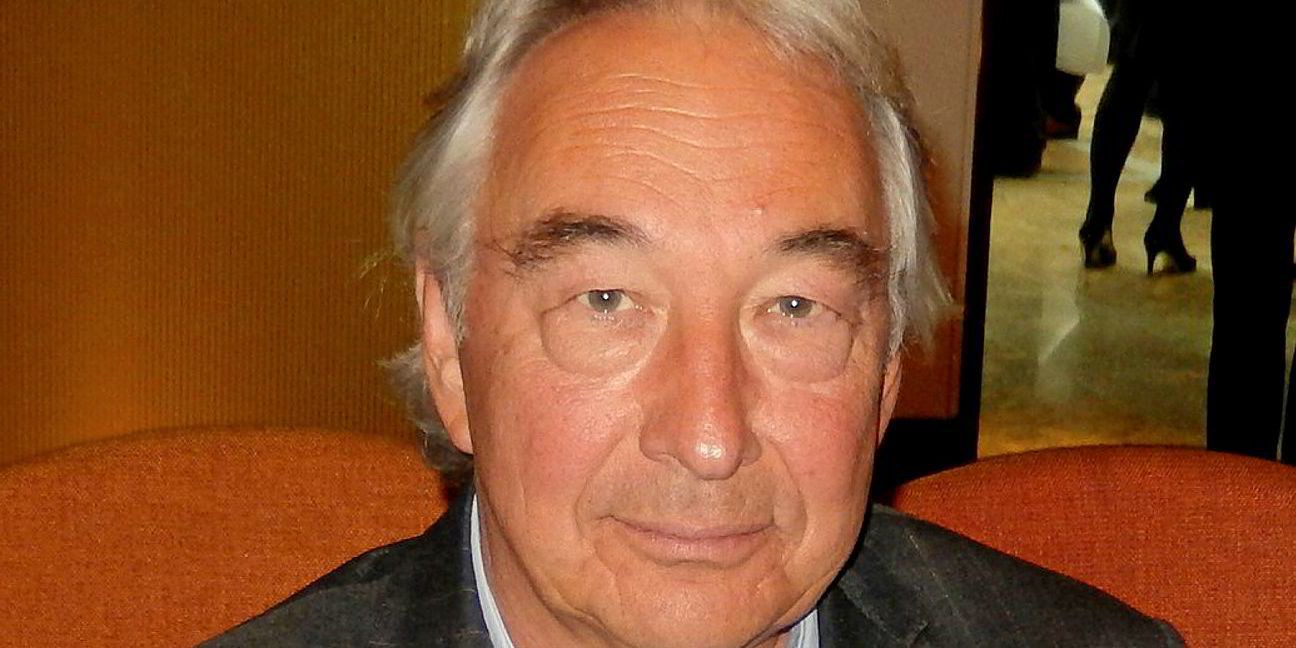Bertram Rickmers has taken another step towards rebuilding his fleet by investing family funds in two more feeder containership newbuildings.
Rickmers’ privately-owned Asian Spirit Steamship has exercised options for a pair of 1,162-teu boxships at Fujian Mawei Shipbuilding in China, market sources said.
The move lifts to eight the number of so-called Bengalmax newbuildings of this size ordered by Rickmers in a series of newbuildings initiated by MarLink Project Management.
MarLink originally ordered six firm and six optional feeder containerships at Fujian Mawei, with Asian Spirit and leading Malaysian domestic boxship player MTT Shipping as nominated owners.
MTT has taken two and is nominated owner for the remaining two options in the series, which have still to be exercised.
It is understood that the six options booked by MarLink are slightly more expensive and involve a different financing package.
Overall, the newbuildings are costing between $20m and $22m each, depending on how many options are finally declared.
The equity contribution by Asian Spirit and MTT is also smaller for the first six vessels, but details are being kept under wraps. A Chinese finance house is said to be involved.
Rickmers’ private investment in tonnage is also a sensitive issue after his public arm, Rickmers Holding, filed for insolvency in June last year, faced with around €700m ($810m) of debt.
The holding company was placed under the equivalent of Chapter 11 protection but, with the assistance of Kurt Zech’s Zeaborn Group, Rickmers has effectively bought it out of preliminary insolvency administration — a process that still has to be completed.
This has included Zeaborn and Rickmers acquiring Rickmers Holding’s global shipmanagement division, three months after the insolvency filing.
Indications are that a decision on technical management of the 10 firm Bengalmax vessels on order in China will be made during the summer and that MTT will handle its own vessels.
It is possible that technical management of Asian Spirit’s ships will end up with Rickmers Shipmanagement, which is part of Rickmers Group. But sources say this remains undecided. The company is already handling newbuilding supervision.
MarLink, which has offices in the same Hamburg building as Asian Spirit chief executive Ulrik Kriete, is currently handling the marketing of the ships.
Eventually, commercial management of the series will be passed to another party. Whether that will be a direct subsidiary of Asian Spirit, which has a majority of the series, is to be decided in the coming months. The exception will be any vessels that MTT deploys in the Malaysian coastal trade under the Malaysian flag.
Sources added that the plan is to delay fixing charters until a few months prior to delivery. Talks are said to be ongoing and MarLink is understood to have firm ideas about required charter levels and structure.
Brick Holding, the Rickmers’ family’s private investment vehicle, is also headed by Kriete. Sources were unable to identify any other private ship-investment projects being worked on.
Zeaborn also took over the operations of Rickmers Group’s multipurpose and project cargo player Rickmers Linie in February 2017. Zech and Rickmers are said to meet regularly but one source described it as purely a “business relationship”.
“It isn’t old friends doing a deal together,” the source said.
Meanwhile, discussions are said to be ongoing as to whether some of the ships built at Fujian Mawei will be geared or delivered ready for gear installation. It is understood the first four will not be geared given their current stage of fabrication. Much will depend on talks with potential charterers and trades, into which the ships will be deployed.
MarLink is believed to be talking to other companies about ordering feeder containerships of a similar design but larger.
The company says slot cost efficiency features of the Bengalmax design can be applied to any feeder containership of between 1,000 and 4,000 teu.
The company worked with Emden-based ABH Ingeneur-Technik on the Bengalmax design, which, while focused on South East Asia and its port restrictions, is claimed to be competitive in other markets.




